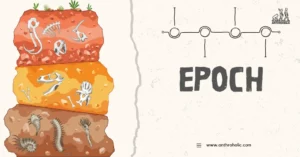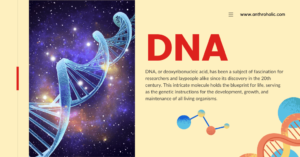AI Answer Evaluation Platform Live Now. Try Free Answer Evaluation Now
Modern Synthetic Theory of Evolution
Evolutionary researchers T. Dobzhansky, J.B.S. Haldane, R.A. Fisher, Sewall Wright, G.L. Stebbins, and Ernst Mayr are among those who first proposed the Modern Synthetic theory of evolution, commonly known as Modern Synthesis.

The modern synthetic theory of evolution is founded on the idea of genes, which are hereditary in nature and aid in passing down traits from one generation to the next. It combines the ideas of Mendelian genetics with Darwinian evolution.
Genes undergo mutation as well as genetic recombination and through these processes individuals show variations in the gene combination in comparison to their genes in their parent population. This variation can either lead to deleterious or beneficial phenotypic characteristics. The individuals that possess deleterious phenotypic characteristics can interfere with the survival of an individual and they are eventually not selected by the nature since they are unable to adapt to their surroundings. This leads to the disappearance of a species from a population. The individuals that possess beneficial or harmless phenotypic characteristics are selected by the nature because they can easily and quickly adapt to their surroundings which makes them more suited to survive. After selection, these individuals now represent a distinct new species that differs from the parent group.
Foundation of Contemporary Synthetic Theory of Evolution
Mutation – A mutation is a sudden change in a gene that causes an individual’s characteristics to vary. The creation of new genes is aided by mutation. Depending on the mutation it can either be harmful or harmless. Natural selection chooses the harmless mutations, which can lead to variation in the population.
Adaptation – How an individual responds to changes in their environment is referred to as adaptation. The chances of survival are higher for those who are well adapted to their environment.
Selection – More adapted individuals in a group are chosen over less adaptive ones through the process of selection. Variation in the population is a result of selection.
Some Components of Modern Synthetic Theory of Evolution
- Reproductive isolation – Reproductive isolation stops individuals from mating with related individuals.
- Genetic Drift – Genetic drift is the term used to describe variations in gene frequency brought on by sudden changes in a smaller population.
- Genetic recombination – Genetic recombination is responsible for the genetic variety that separates a person from their parents. In contrast to mutations, genetic recombination results in new genotypes rather than new genes.
- Natural selection – Those who are better adapted to their environment are selected.
- Mutation – A mutation is caused by sudden inheritable changes.
The easiest way to convey the modern synthesis theory of evolution is with the help of a camel and llama example. Both the camel and the llama are closely related species. Llamas reside in high altitude regions, whereas camels live in the desert. The ability of the hemoglobin to bind oxygen varies between camels and llamas. The hemoglobin of a camel has a normal capacity to bind oxygen, but the hemoglobin of a llama has a stronger affinity for oxygen and can bind more oxygen at higher altitudes. This is brought on by a mutation in the llama’s hemoglobin, which aids in the animal’s ability to adapt to its environment and eventually evolve into a distinct species.
The Modern Synthetic theory of evolution is similar to Darwin’s concept of gradual change in the formation of new species through natural selection, with the exception that genetic differences in the population are caused by changes in mutations. The genetic information is changed as a result of these variations, which helps the individual in adapting to their environment and, ultimately, results in the selection of an individual.
References
- Ayala, F. J. (1982). Beyond Darwinism? The challenge of macroevolution to the synthetic theory of evolution. In PSA: Proceedings of the Biennial Meeting of the Philosophy of Science Association (Vol. 1982, No. 2, pp. 274-291). Cambridge University Press.
- Singh, V., & Singh, K. (2018). Modern synthesis. Encyclopedia of Animal Cognition and Behavior: New York, Springer, np, doi, 10, 978-3. https://www.researchgate.net/publication/324058362_Home_Base_2018_In_Vonk_J_Shackelford_T_eds_Encyclopedia_of_Animal_Cognition_and_Behavior_Springer_Cham




